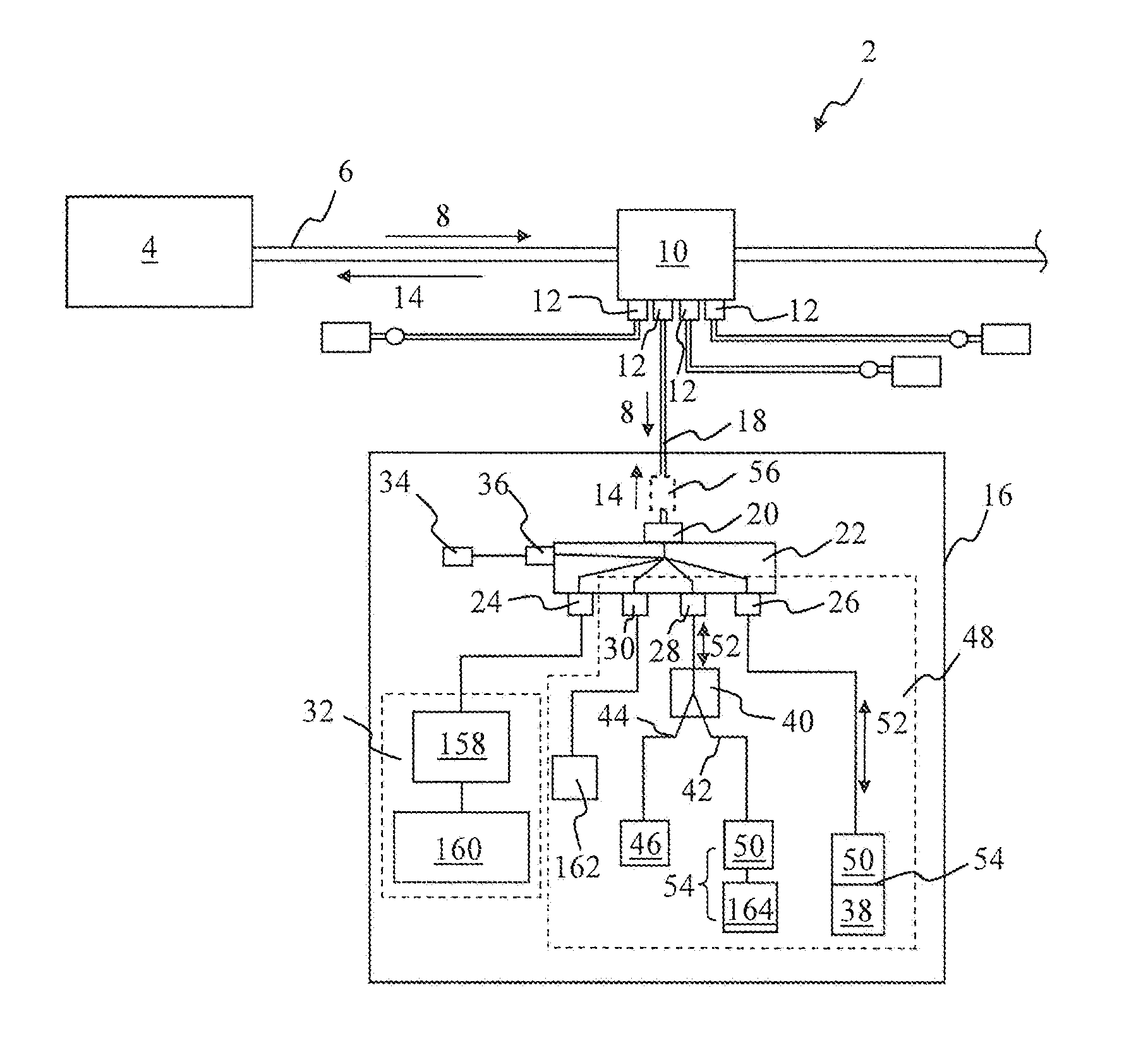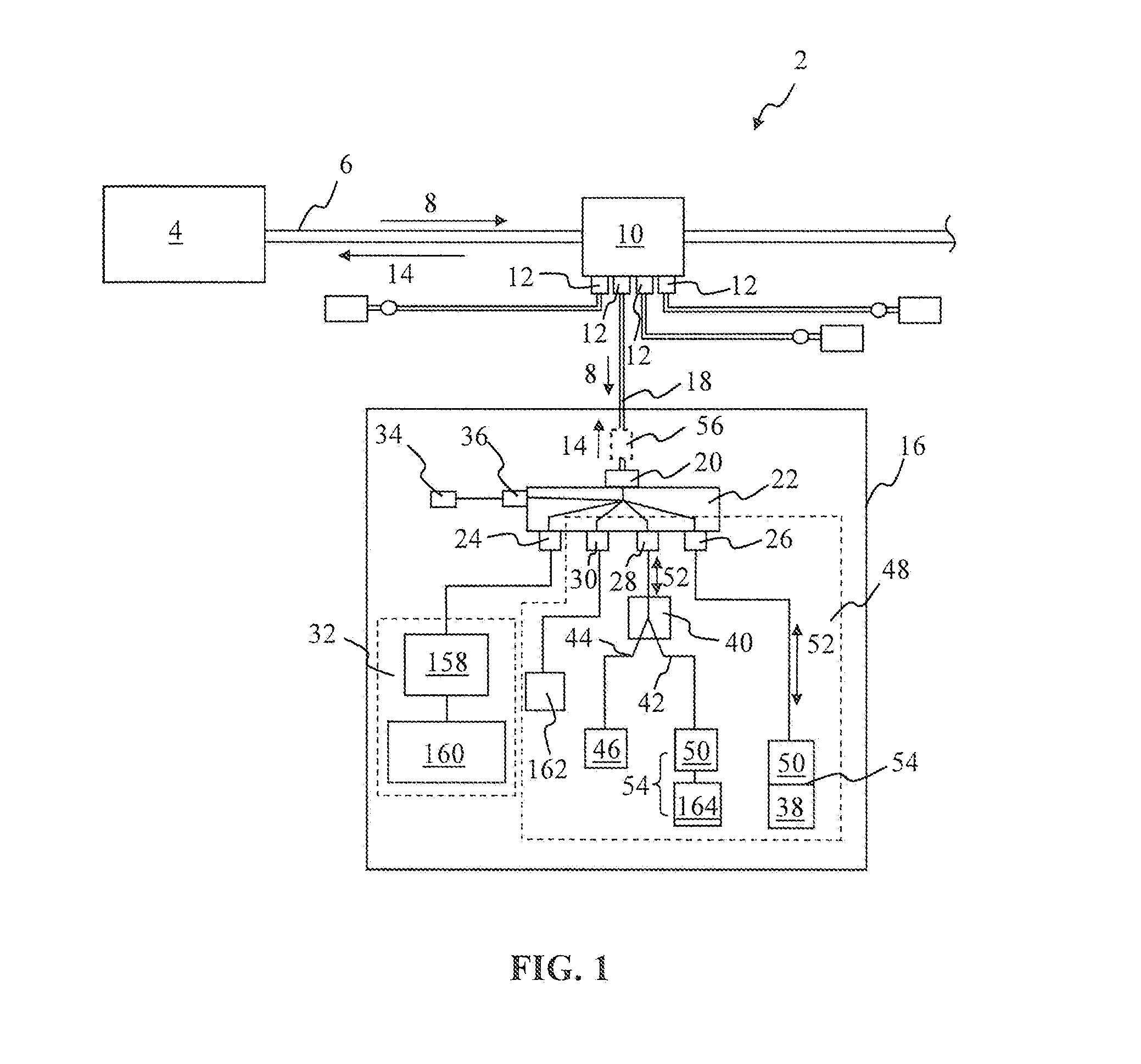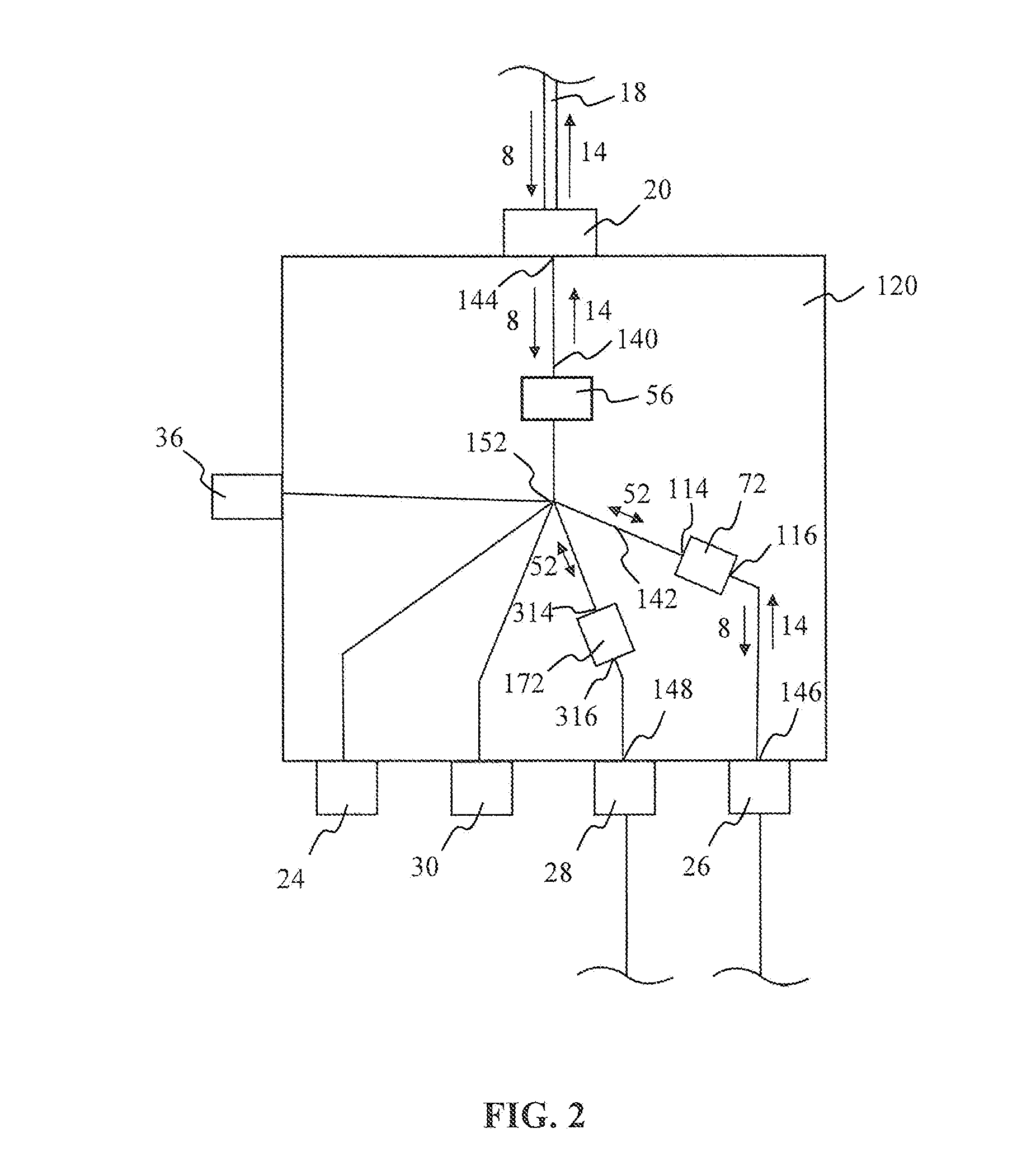Home network frequency conditioning device
a frequency conditioning device and home network technology, applied in the field of community access or cable television (catv) networks and in-home entertainment networks, can solve the problems that multi-media-over-coax signals have the capability of adversely affecting the proper functioning of standard catv subscriber equipment, and achieve the effect of improving the frequency response of signals conducted
- Summary
- Abstract
- Description
- Claims
- Application Information
AI Technical Summary
Benefits of technology
Problems solved by technology
Method used
Image
Examples
Embodiment Construction
[0026]Community access television, or cable television, (CATV) networks use an infrastructure of interconnected coaxial cables, splitters, amplifiers, filters, trunk lines, cable taps, drop lines and other signal-conducting devices to supply and distribute high frequency “downstream” signals from a main signal distribution facility, known as a head-end, toward subscriber premises such as homes and businesses. The downstream signals operate the subscriber equipment, such as television sets, telephones, and computers. The typical CATV network is a two-way communication system. CATV networks also transmit “upstream” signals from the subscriber equipment back to the head-end of the CATV network. For example, upstream bandwidth may include data related to video-on-demand services, such as video requests and billing authorization. Two-way communication is also utilized when using a personal computer connected through the CATV infrastructure to the public Internet, for example when sharing...
PUM
 Login to View More
Login to View More Abstract
Description
Claims
Application Information
 Login to View More
Login to View More - R&D
- Intellectual Property
- Life Sciences
- Materials
- Tech Scout
- Unparalleled Data Quality
- Higher Quality Content
- 60% Fewer Hallucinations
Browse by: Latest US Patents, China's latest patents, Technical Efficacy Thesaurus, Application Domain, Technology Topic, Popular Technical Reports.
© 2025 PatSnap. All rights reserved.Legal|Privacy policy|Modern Slavery Act Transparency Statement|Sitemap|About US| Contact US: help@patsnap.com



